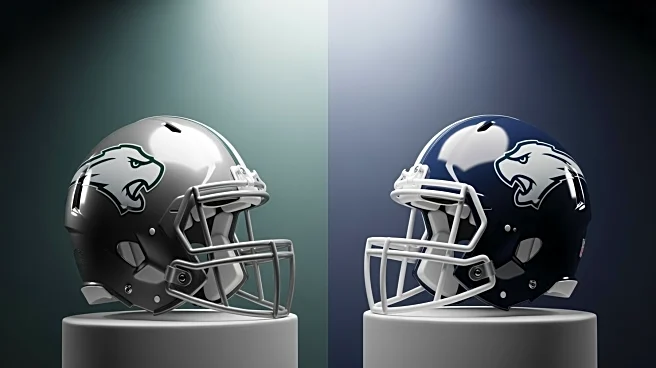What's Happening?
The NFL fanbase rankings for 2025 have been released, highlighting the most loyal and toxic supporters in the league. The Philadelphia Eagles fanbase is recognized for its unwavering loyalty, with attendance
rates exceeding 97% despite challenging seasons. Eagles fans also lead in away game support, spending significantly on travel and merchandise. Conversely, the Dallas Cowboys fanbase, while having a substantial national presence, is noted for a split personality, with increased negative interactions and trolling following losses. The New England Patriots fanbase is under scrutiny for online abuse directed at players and staff, while the Cleveland Browns fans are praised for their resilience and positive engagement.
Why It's Important?
These rankings underscore the significant impact fanbases have on NFL teams' reputations and dynamics. Loyal fanbases like the Eagles contribute positively to team morale and financial success through consistent support. However, toxic behaviors, as seen with the Cowboys and Patriots, can lead to negative publicity and affect team performance and player well-being. Understanding these dynamics is crucial for teams to manage their public image and foster a supportive environment. The rankings also reflect broader societal trends in sports fandom, where passion can sometimes cross into harmful behavior.
What's Next?
As the NFL season progresses, teams may take steps to address fan behavior, particularly those with toxic reputations. This could involve increased moderation of online platforms and initiatives to promote positive fan engagement. Teams might also leverage the loyalty of their fanbases to boost attendance and merchandise sales, especially during challenging seasons. The ongoing analysis of fan interactions will likely continue to influence team strategies and league policies.
Beyond the Headlines
The rankings reveal deeper cultural implications about sports fandom in America, where loyalty and fanaticism can blur lines between support and hostility. This phenomenon raises ethical questions about the responsibility of teams and leagues to manage fan behavior and protect players from harassment. The evolving nature of fan engagement, driven by social media, highlights the need for ongoing dialogue about the role of fans in sports culture.









